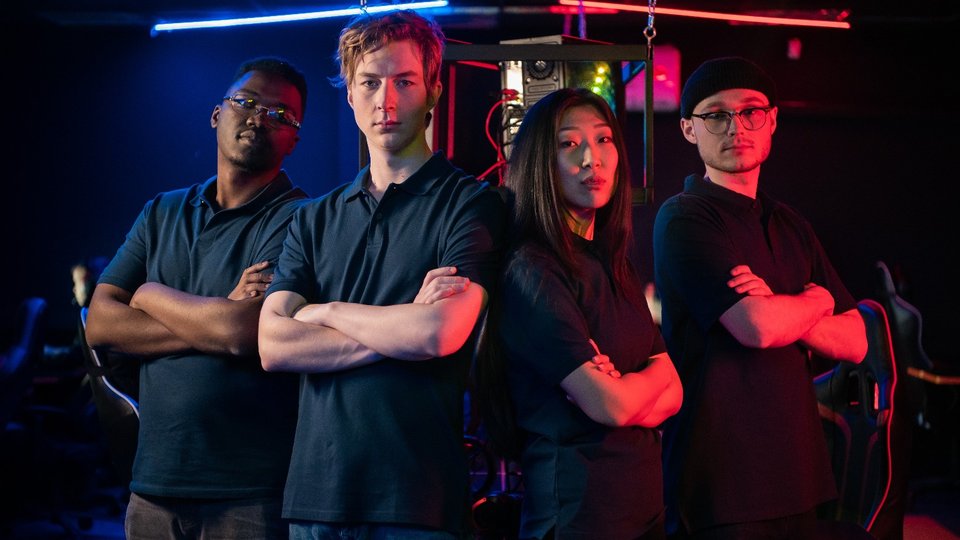Commentary
E-sports’ growing pains: Down but not out
E-sports have struggled of late, partially due to the fallout of the cryptocurrency market. International investment continues, however, along with the search for winning business models.

May 29, 2023 by Kevin Williams
Concerns regarding the rigidity of the e-sports sector have resulted in serious doubt as the sector seemed to be in freefall with the closure of teams and the abandonment of event operators. What has been seen as one of the most important impacts in the sector came with the news that Counter Logic Gaming, one of the largest e-sports communities, was linked to rumors that many of its employees had been laid off. This news came just as owner Madison Square Garden Sports was in the final stages of selling the operation to NRG Esports.
NRG Esports is reported to have paid an undisclosed sum for the CLG operation and the remaining League of Legend entertainment group. This operation is the only component of CLG that had not seen mass layoffs of their staff. NRG is an e-sports organization running competitions based on popular leagues, with full Twitch and streaming support, and is expected to add the League of Legend Champion Series community to its Rocket League and Overwatch streams.
In search of a business model
For many observers, it seems that a gold rush of acquisitions of popular leagues is being undertaken towards establishing a supported and profitable business model away from much of the hyperbole that surrounded the sector.
Savvy Gaming Group, a subsidiary of the Saudi Arabian government's Public Investment Fund — an investment operation — has once again stepped in to invest in the e-sports and immersive technology scene. It was announced in April that the group had invested $38 billion towards growing the Saudi territories' investment in videogaming and e-sports competitive entertainment.
The impact of the decline in the e-sports sector has been felt across the international markets, one of the fastest growing markets of Asia. Several developments have befallen the Chinese e-sports community, ranging from several leading teams being restructured following departures or ceasing operation completely. News is circulating of the departure of popular players from teams, or the complete closure and disappearance of once prominent e-sports leagues in the territory. However, sources in the sector seem adamant that the competitive entertainment is still a viable draw in the country.
The crypto factor
The funding infrastructure that supported the e-sports boom was linked in some part to blockchain and crypto currencies. As crypto has started to falter, the funding seems to have vanished from e-sports and has seen the cracks revealed in the competitive gaming ecosystem.
One of the latest victims of the current "crypto winter" was revealed with news that the Australian banking and trading regulatory commission had cancelled the license to trade of Binance Australia — at the time one of the world's largest crypto exchanges. This was the latest license removal for the crypto service.
This has seen a curtailing by some in e-sports investment as funding is now restructured. Recent media coverage reported that blockchain-based game development has seen a drop to 20% of venture capital raised in the first quarter, compared to other years.
Investment continues
Not all investment has abandoned e-sports projects, however. It was announced in April that a $20 million Series A round of investment had been secured for Goals, a company developing series of soccer-based games for e-sports adoption. One of the investments of this round included backing from soccer team Tottenham Hotspur.
Regarding crypto investment, we see sportsbook and crypto casino developer Stake.com increase investment into the e-sports scene, with a partnership with Oddin.gg — an end-to-end e-sports b2b betting platform. The ecosystem was created to allow members to wager on the e-sports events through a platform supported by a crypto-gambling leader.
Likewise, the full rendering of the Six Flags Fiesta Texas e-sports environment was revealed. Called a "first-of-its-kind" venue branded ESIX Gaming, the operation partnered with Coca-Cola to create a competitive gaming campus. This includes dedicated playing terminals (50 stations), event stage, Coke VIP lounge and broadcast studios. All with its own bar and restaurant support. The design was developed in collaboration with UTSA's registered student organization, Roadrunner Gaming, towards attracting players and developing the needs of the e-sports local community.
Not just in North America, but also in the Southern Hemisphere, we see investment in new spaces for the competitive society. It was announced that Sydney would see the largest e-sports venue in that hemisphere to date.
Covering over 2,000 square miles and expecting some 400,000 visitors in the first year, Fortress is the latest in the venue chain to open in the territory. Comprising e-sports stations, competition stage and entertainment, the new venue has opened in the Central Park Mall in Sydney. The operation is hoping to tap into the Australian gaming audience, which made the gaming industry in this territory over $4 billion last year.
Esports Entertainment Group steps forward
This continued investment and support of e-sports was reflected by Esports Entertainment Group, which sent a letter to shareholders stating that, even though they are undertaking ongoing restructuring of their business to enhance operation efficiency, they were confident in their ability to establish a dominant position within this high-growth industry and drive long-term profitability.
EEG is a business-to-consumer iGaming operator that operates under a Malta Gaming Authority license. Its restructuring had seen the layoff of some 158 full-time employees, with the aim to lower operating expenses by over $4 million. But according to a statement, the corporation still felt that the e-sports betting landscape was its specific focus towards establishing EEG as a leader in this rapidly emerging market.
So, while we are seeing a serious cooling of interest, e-sports is still receiving serious investments — such as the announcement that Mysten Labs had raised over $300 million to launch high-end games on its Sui Layer 1 blockchain platform, creating a dedicated development community to supply the best games within this blockchain-powered ecosystem. This indicates serious competition towards establishing a standard platform for developers to adopt.
(Editor's note: Extracts from this blog are from recent coverage in The Stinger Report, published by Spider Entertainment and its director, Kevin Williams, the leading interactive out-of-home entertainment news service covering the immersive frontier and beyond.)
About Kevin Williams
Along with advisory positions with other entrants into the market he is founder and publisher of the Stinger Report, “a-must-read” e-zine for those working or investing in the amusement, attractions and entertainment industry. He is a prolific writer and provides regular news columns for main trade publications. He also travels the globe as a keynote speaker, moderator and panelist at numerous industry conferences and events. Author of “The Out-of-Home Immersive Entertainment Frontier: Expanding Interactive Boundaries in Leisure Facilities,” the only book on this aspect of the market, with the second edition scheduled for a 2023 release.
 ChatGPT
ChatGPT Grok
Grok Perplexity
Perplexity Claude
Claude






